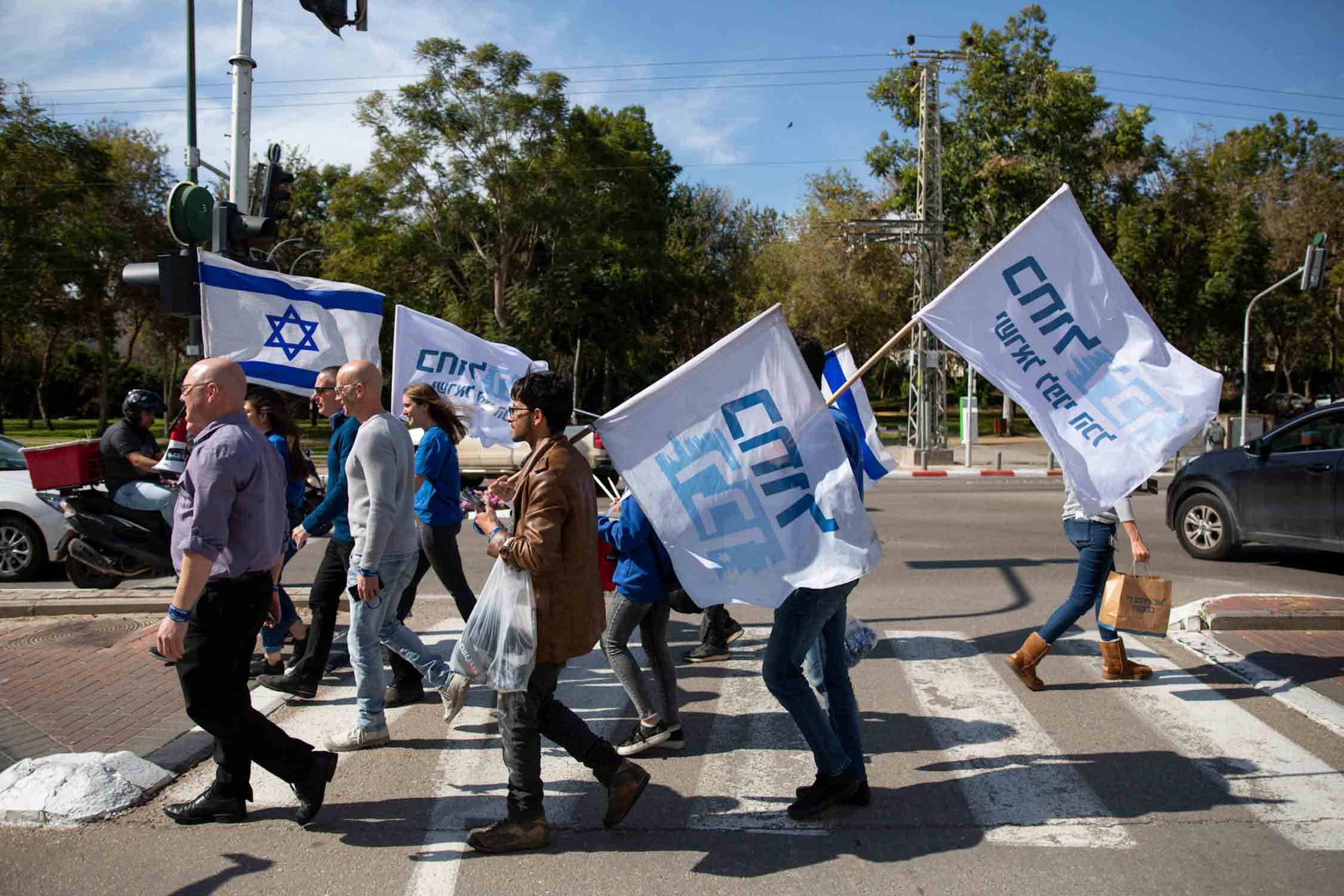Israel: A Plebiscite on Bibi
March 4, 2020 | Expert Insights

Chaos in the Knesset
Israel is holding its third election in 11 months after the last 2 rounds failed to break the country’s political standoff.
A total of 29 parties are in the fray, and voters will elect 120 members of the Knesset. The candidate who gathers the support of 61 members becomes the Prime Minister. The political parties are divided into four camps: the right-wing parties, the left-wing parties, the religious parties (including Haredim, or ultra-Orthodox, and religious Zionists), and the Arab parties (including the Communist Hadash).
Traditionally, most parties have coalesced around either a religious right-wing bloc or a centrist and centre-left bloc. Prime Minister Netanyahu has managed to stay in the office for years because of his association with orthodox Jews and the right wing.
In April, Benjamin Netanyahu could not form a coalition due to disagreement over a bill to draft Haredi Orthodox men into the military. Then in September, the Blue and White--the centrist coalition led by Benny Gantz--won most votes, but could not form an alliance because of non-convergence on ideas.
Use of Social Media
Right-wing parties have gained the attention of young voters through social media. Prime Minister Netanyahu, who is not very keen to speak with the Israeli press, is comfortable tweeting and posting videos to Facebook.
The third election has been marred by fake news about coronavirus and anonymous text messages sent to voters claiming the far-right Otzma Yehudit party has quit the race. President Reuven Rivlin described this as a “Horrible, Filthy, Election campaign.” He said “[i]t was always a day we considered to be a celebration of Israeli democracy… today I feel no sense of celebration.”
In previous elections, Facebook had suspended Netanyahu's campaign bot over hate speech. In this election, Facebook took down a video he posted that illegally cited new polling numbers.
Roots of Right-Wing Dominance
After Israel came into being, for almost three decades, the Jewish state was ruled by the left parties. In May 1977, under Menachem Begin’s leadership, the right-wing Likud alliance defeated the Labour alignment for the first time. Since then, the right-wing bloc has dominated the Knesset.
The conservative right has believed in Israel's rights to the biblical territory that was occupied as a result of the country's war of self-defence in 1967. The left has always believed in the need for compromise on the territories. The question of a Palestinian state has become the core issue of dissonance between the two sides.
The right-wing gained more fortitude after the Second Palestinian Intifada of 2000-2005. Young Israelis who lived through the turmoil witnessed Israelis being killed in suicide bombings. The outcome of the 2005 disengagement from Gaza led many Jews to resent any leader who is keen to hand over any more land currently under Israeli control. As some of them had served in the army, successive wars in Gaza hardened that perception. In addition, they were subject to right-wing propaganda espousing nationalism.
Aliyah and Anti-Semitism
In 2015, Netanyahu repeatedly called on Jews in Europe to migrate to Israel following a series of anti-Semitic attacks in Copenhagen as well as attacks on the staff of the French news publication Charlie Hebdo and a kosher supermarket in Paris. “This wave of terror attacks can be expected to continue, including antisemitic and murderous attacks. We say to the Jews, to our brothers and sisters, Israel is your home and that of every Jew. Israel is waiting for you with open arms.” To this, the European leaders responded by pledging to ensure the safety of their Jewish citizens in their countries and rejecting calls for Jews to migrate en masse to Israel.
Jewish immigration is an idea embodied in the Hebrew word for it, aliyah, which means “the act of going up” or ascent. The Israeli state was built by immigrants, and its 1948 Declaration of Independence affirms that Israel “will be open for Jewish immigration and for the ingathering of the exiles.”
It is reported that Netanyahu desires aliyah, not to offer protection, but to try and continue to change the demographics, particularly in the West Bank. An increase in aliyah, however, especially to the West Bank, will only help to fuel anti-Semitism.
The Election Results
As per exit polls, the Prime Minister is heading towards a win, although he is likely to be short of a few seats. The polls have indicated that his Likud Party may win 36-37 seats. Other right-wing parties, the Shas, UTJ and Yamina, won 9, 7-8 and 6-7 respectively. Blue and White were shown with 33 seats, its ally, Labor-Gesher-Meretz 6-7, the Joint List 14-15, and Yisrael Beytenu 6-8.
Assessment
- Jewish millennials, who make up a significant 66 percent of the electorate, can likely deliver a majority to Netanyahu in this election because they have been helping the right-wing bloc since the Second Intifada. Similarly, those who have returned as a part of aliyah are also leaning towards right-wing groups because of their promise to change the demographics in West Bank. The Middle East peace plan was Netanyahu’s appeal to gain more votes for this election.
- Under Netanyahu, the economy is booming, and the wall and the iron dome missile shield form a solid backstop to the overt security cooperation with the Palestinian Authority in the West Bank and Hamas. However, allegations of corruption place a shadow on Netanyahu’s ability to run a cohesive administration over his full term.
- There were low expectations for these elections. The voters found nothing had changed with the same campaign slogans and, ideological sticking points, unchanged and therefore it was doubted whether a clear verdict could be delivered. However, exit polls indicate perhaps a razor-thin majority for Netanyahu.
Image Courtesy: NewYorkTimes








Comments